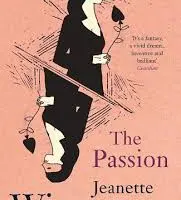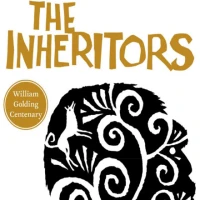Manhattan Transfer, by John Dos Passos
I was introduced to John Dos Passos by Kerry’s blog Hungry like the Woolf, here. Before that, I’d heard the name, but wasn’t familiar with the work. Kerry piqued my interest, and a recent trip to New York seemed the perfect opportunity to give Dos Passos a try, starting with his 1925 novel Manhattan Transfer (published the same year as The Great Gatsby, but taking a very different approach to grappling with the issues of the day).
Manhattan Transfer is a panoramic novel, it starts in the late 1890s (not that this is made explicit, but to a contemporary reader it would have been obvious), and then sweeps on through around three decades of New York life. It seeks to show the reader the city as a film might, a sweeping vista in which all its life is made apparent and the metropolis’s intricate mechanisms are laid bare.
To an extent, it’s a fairly unsympathetic portrait. New York is a vast machine that processes people, absorbs them and shapes them – but without regard to their own hopes and fears. The city is a monstrous engine of capitalism, indifferent to the small lives of its citizens and driven by impersonal forces to its own blind ends. The novel was written at a time when socialism was a live force in American life, hard as that is to imagine now, and a socialist current runs through it with the workers’ struggle and the prospects for class revolution concerning several of the novel’s varied cast. Of course, revolution never happened, and as a naturalist novel it doesn’t arrive here either, some may dream of a better world but Manhattan Transfer doesn’t make that world seem all that attainable.
Stylistically, Manhattan Transfer is a little unusual. Each chapter opens with an indented impressionistic passage in a smaller font than the normal text. The following passages are the opening paragraphs of the novel, the first of the two properly should be in a six or eight point font but sadly I haven’t worked out how to achieve that in WordPress so I’m afraid the effect this has in the actual book is a bit reduced here:
Three gulls wheel above the broken boxes, orangerinds, spoiled cabbage heads that heave between the splintered plank walls, the green waves spume under the round bow as the ferry, skidding on the tide, crashes, gulps the broken water, slides, settles slowly into the slip. Handwinches whirl with jingle of chains. Gates fold upwards, feet step out across the crack, men and women press through the manuresmelling wooden tunnel of the ferry-house, crushed and jostling like apples fed down a chute into a press.
The nurse, holding the basket at arm’s length as if it were a bedpan, opened the door to a big dry hot room with greenish distempered walls where in the air tinctured with smells of alcohol and iodoform hung writhing a faint sourish squalling from other baskets along the wall. As she set her basket down she glanced into it with pursed-up lips. The newborn baby squirmed in the cottonwool feebly like a knot of earthworms.
What’s noticeable in that first, indented, passage is that it’s not a classic piece of descriptive prose. Rather it’s a collage, a series of images which together create an impression. Here the result is fairly straightforward, in some chapters though it can take concentration to even work out what’s being described, the point isn’t accuracy, it’s sensation (but not to be fair sensationalism).
What’s also I think immediately noticeable is the strange compound words used in those two paragraphs. The novel is filled with them: orangerinds, manuresmelling, cottonwool. Words here mash together, sometimes to create an apparently more meaningful whole, but sometimes just colliding as if the sheer velocity of the prose has pushed them into each other. Equally, the imagery is often repulsive, inhuman. A newborn baby is like “a knot of earthworms”, men and women arriving on the ferry for their day’s work are like “apples fed down a chute into a press.” The whole effect is slightly dizzying, jarring, and that for me made this an often challenging read. The language is dense, clever, tricky in its deliberate ignoring of the normal rules of grammar (and indeed spelling, dialogue is often written as pronounced rather than as spelled). Kerry’s blog speaks to Dos Passos’s stylistic approach in some detail, so I won’t repeat that too much here, but I will say it means that I had to pay attention to read this novel, it requires a little dedication.
Manhattan Transfer is impressionistic in other senses too. Each chapter consists of a number of, often very short, passages dealing with different characters. Out of work men new to the city hoping to find work, ambitious lawyers, immigrants, actresses, Bowery bums, business tycoons, journalists, bankers, seamstresses, everyone is here. The novel dips into these lives a few paragraphs, rarely more than a couple of pages, at a time. Characters recur, their lives develop and sometimes intertwine, but overall the effect is of skimming from life to life with people meshing together as small cogs in a a huge city brimming with ambition, failure, potential, passion, despair, humanity.
There is a cost to this approach, characters’ internal voices are often extremely similar. Spoken dialogue varies a great deal (though often more in terms of dialect than content), but internal monologues not so much. Equally and inevitably, some characters are far more developed than others, many remaining essentially just a representative type. This isn’t really a character driven novel, and if one approaches it looking for acute psychological insight then that isn’t really here to be found.
But of course, that’s not the point. The individual this novel focuses on isn’t Jimmy Herf or Ellen Thatcher (to take the two most developed characters), it’s New York City itself in all its splendour and inhumanity. As a portrait of any given individual, this novel isn’t a great success (save perhaps for those two I just mentioned), as a portrait of a city and an age though, it is.
One of the advantages of Dos Passos’s huge cast is the number of viewpoints it affords us, from the Upper West Side to tenement apartments where upstairs neighbours carry out illegal abortions and snooping landladies mean young couples with no money can have no privacy at all. Money comes with societal expectations that control your life, poverty with a lack of opportunities that mean your fate is just as circumscribed. The only people in the novel who seem at all free are those who live on their own terms, without compromise, those who accept the city’s terms are bound by them and live for it rather than themselves. Even so, that breadth of viewpoints means we see the city’s rich and poor, the struggling middle classes, the upwardly and the downwardly mobile, we see it all.
At times, it’s rather funny, I particularly liked this conversation between some newly arrived immigrants:
‘Eh bien you like it this sacred pig of a country?” asked Marco.
‘Why not! I like it anywhere. It’s all the same, in France you are paid badly and live well; here you are paid well and live badly.’
There is part of me that thinks eighty years later that comment still holds up pretty well.
More importantly though, as this is not a comic novel, is the quality of the writing. Dos Passos can write. I’m quoting the following passage in full because it gives a good feel for Dos Passos’s style, but look out for the line “… the hunched shoulders of men asleep, faces crumpled like old newspapers pillowed on arms”, which I think is simply wonderful.
Joe Harland had slumped down in his chair until his head rested on his arms. Between his grimestiff hands his eyes followed uneasily the lines on the marbletop table. The gutted lunchroom was silent under the sparse glower of two bulbs hanging over the counter where remained a few pies under a bellglass, and a man in a white coat nodding on a tall stool. Now and then the eyes in his gray doughy face flicked open and he grunted and looked about. At the last table over were the hunched shoulders of men asleep, faces crumpled like old newspapers pillowed on arms. Joe Harland sat up straight and yawned. A woman blobby under a raincoat with a face red and purplish streaked like rancid meat was asking for a cup of coffee at the counter. Carrying the mug carefully between her two hands she brought it over to the table and sat down opposite him. Joe Harland let his head down onto his arms again.
Equally, this short passage packs a great deal into very little space, and with considerable elegance:
They had to change at Manhattan Transfer. The thumb of Ellen’s new kid glove had split and she kept rubbing it nervously with her forefinger. John wore a belted raincoat and a pinkishgray felt hat. When he turned to her and smiled she couldn’t help pulling her eyes away and staring out at the long rain that shimmered over the tracks.
There is a restless energy to Manhattan Transfer. In an excellent (and extremely well written in its own right) introductory essay by Jay McInerney, there is a comment that the characters are trying to seek the centre of the city, to find the heart of things, as summarised here by Ellen Thatcher on taking her job at a fashion magazine:
‘… what you want to do is make every reader feel like Johnny on the spot in the center of things.’
‘As if she were having lunch right here at the Algonquin.’
‘Not today but tomorrow,’ added Ellen.
The centre though is unattainable, indeed there isn’t one. There is just the city, a vast ant farm in which the individual is swallowed up, a machine in which each person is processed and absorbed. McInerney’s main criticism of the novel, a valid one, is that in showing how capitalism robs people of their humanity, their meaning, Dos Passos perhaps does the same thing. As he says: “The rapid-transit, discontinuous narrative brilliantly captures the pace of the city, the sense of brief, promiscuous contact with other lives. The metallically impersonal narrative voice carries the hard-edged din of the city at the same time that it keeps us at a distance from the residents; though it may swoop down from the smoky Manhattan skies from time to time to inhabit one of the characters, we are never long in the presence of a sympathetic consciousness. The danger with this method is that the victims of oppression are damned along with their chains.”
Manhattan Transfer is a difficult novel in some respects, I had to consciously push myself through it and it took me far longer to read than I expected. It comes together at the end, however, in a very rewarding fashion which for me really made that effort worthwhile. There are novels that are let down by their endings, and novels (like Aldous Huxley’s Antic Hay) where the ending redeems the novel changing the experience from irritation to enjoyment. Manhattan Transfer never irritated (though Dos Passos does share Huxley’s fondness for dropping in bits of dialogue in untranslated foreign languages, a habit I dislike), but it wasn’t easy and if like me at times you find it hard going then it is rather marvellous to reach the end and find it brought together into a coherent artistic whole that as a completed work is intelligent and rewarding. It’s not flawless, but it is excellent for all that.
My final comment would be that if you are to read this, it may be worth just spending twenty minutes or so first reading up on early twentieth Century history on Wikipedia. I mentioned at the start of this blog entry that to a contemporary reader the period details would be obvious. To a modern reader that isn’t necessarily the case, and early on I got quite confused as to exactly when things were happening, what period I was actually in. A very basic grasp of what to a contemporary reader would have been common knowledge will help keep the chronology straight, this isn’t historical fiction with that genre’s helpful explication and Dos Passos didn’t seek to help out future readers whose recollections of to him recent events such as the Russian-Japanese war might perhaps be less than the novel assumes.













Max,
I am very pleased you decided to try Dos Passos. I am thrilled to read your very thorough and insightful review. Apparently, he used many of the same stylistic devices in Manhattan Transfer that he later put to use in the U.S.A. Trilogy. That first paragraph you quote is almost exactly what the “Camera Eye” sections in U.S.A. are like. And you have identified both the challenge and the purpose nicely.
I thought this observation of yours was great:
Dos Passos seems much more interested in the collective than the individual. In this work, the portrait is of the city over a few decades, in U.S.A. it is a portrait of a country. I think Dos Passos is unique and, hence, well worth reading for his ability to capture a large entity in the way others examine an individual.
I am glad you’ve tried Dos Passos and thrilled that you enjoyed it. I enjoyed your review and now know that Manhattan Transfer will provide an experience similar to that I reveled in while reading U.S.A.. Thank you.
You make it sound very worthwhile and I might well go onto it after Notes from Underground. Do you know what I should read that typifies life in the 30s (that isn’t Wodehouse)?
Thank you Kerry. I doubt very much I’d have read Dos Passos but for your blog.
I note on your blog that some critics complained about the camera eye sections, what an extraordinary missing of the point such comments represent. It’s akin to complaining about the architecture chapters in Notre Dame de Paris, they’re not an interruption, they’re a reflection of precisely what the book’s about.
As for the USA Trilogy, I’m sure now I shall read it, but probably not for a few months. Dos Passos is dense stuff.
Steve, have you read Damon Runyon? He is brilliant, a comic genius in many ways. his stuff tends to the 30s. A spectacular writer. The Penguin Modern Classics collection titled On Broadway is very good.
Otherwise, hm, I’ll give it some thought. John Fante impressed me recently, but I’ll think more. I’m about to go away for the weekend (Emma’s taking me on a surprise trip to Venice, hurrah!) so I’ll respond more when I get back.
Excellent review that is much appreciated, Max. Kerry’s review of the USA Trilogy put it back on my agenda (it is one of those books that has been on the shelf for a long, long while) — your analysis of Dos Passos’ style is most useful for me before I start. And I will have to get to Manhattan Transfer eventually. I’m particularly like Edith Wharton and Henry James works set in turn-of-the-century New York (NYRB has put out excellent New York short story collections for both). This book — which obviously sees some parts of the city that they do not — would supply much depth.
Steve: I second the Runyon recommendation (and it is a reminder that I have promised to reread him). For rural depression America, there is Steinbeck for sure, although he is not one of my favorites. For an urban view, consider Saul Bellow’s The Adventures of Augie March (it does extend into the War).
Steve,
Quick comment from my blackberry. For 1930s England the authors to look out for are Patrick Hamilton and Julian Maclaren-Ross. For JM-R the novel to buy is Of Love and Hunger, which is spectacular and a favourite of mine. I’ll check on the Hamilton’s, but he’s bloody good.
Both capture a thankfully dying England of intrusive landladies, grey Sundays and small minded prejudice. A world away from Wodehouse (whom I love).
Pingback: Manhattan Transfer by John Dos Passos « Hungry Like the Woolf
Pingback: Cosmopolis and the creative cowardice of Anglo-American literature | Pechorin’s Journal
Pingback: Manhattan Transfer | Potter's Book Blog
Fanstastic review, Max. You capture the novel very well.
Reading all the quotes, I’m happy I’ve read it in French and in a good translation.
Pingback: New York, New York | Book Around The Corner